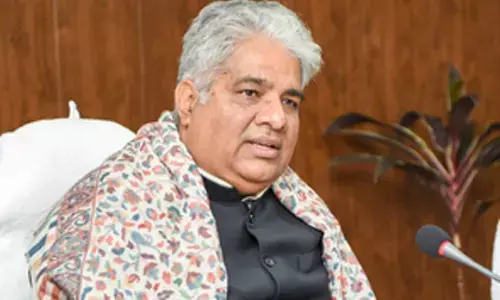THE BEAUTY AND JOY OF GIFTING

The act of giving a gift creates a bond between the donor and the recipient, irrespective of whether it is motivated by altruism, or obligation.
The act of giving a gift creates a bond between the donor and the recipient, irrespective of whether it is motivated by altruism, or obligation. It reaffirms the relationship between the giver and the receiver and creates an obligation on the latter's part to reciprocate. Also, turning down a gift entails a negation of that social relationship and is often construed as an insult to the donor.
The role of 'dana' or gifts is particularly relevant as it shows the close interconnection between gift giving, diplomacy and statecraft. The Vedas, the Upanishads, the Ramayana and the Mahabharata speak at length of dana. The Mahabharata held that only the charitable ideas of dana have developed in interaction with other forms of charitable, non‐reciprocal exchanges, such as bhiksha (alms), dakshina (ritual payments), the Islamic 'zakat' (annual obligation to give charity) and the voluntary 'sadaqa'.
While gifts can take various forms and shapes, easily the most courageous, and humanitarian, gift is that of donating an organ to another person in need of it.
The exchange of gifts is a universal tradition which dates back to time immemorial. To mark the commencement of a new relationship or the strengthening of an old one, a gift is often an expression of love, gratitude, and happiness. Gifts are often traditional, as the gifting tradition of different countries reflects the unique features of the culture of the country. While the reasons for giving gifts have changed over time, the custom has remained the same. While the practice varies from one country to another, there are many commonalities. Countries also send gifts to close friends and allies to mark historic moments.
A gift in China is always presented in a wrapper of an appropriate colour: gold or silver for weddings, red for joyous occasions, and black or white for funerals.
In Italy, gifts are an essential aspect of all social gatherings, as the guests are expected to bring a gift for the host as a gesture of thankfulness. Wine is usually considered as an appropriate gift for most occasions, which must be from a reputed vineyard. Followed in India, too, I did the same, during my visits for the meetings of the Food and Agriculture Organization (FAO) while in Rome.
Prominent among the most statuesque, and well-known, gifts, by one country to another, is the Statue of Liberty, a colossal sculpture on Liberty Island in New York Harbor, and a gift from the people of France. Designed by the French sculptor Frederick Auguste Bartholdi and built by Gustave Eiffel, it was dedicated to America on October 28, 1886.
New Year's Day is a time for families and friends to gather, exchange wishes and gifts. This tradition dates back to the Roman Empire when people brought gifts to the Temple of the Goddess of Fortune on 'Kalends,' or the first day, of the month of January. The modern practice of exchanging gifts between friends and loved ones on New Year's Day is a curious relic of ancient traditions.
India has some unique gifting traditions. As a gift is always given with both hands, or only the right hand. Sweets are often considered as an appropriate gift for any occasion in India.
It is customary, on occasions when gifts are in order, to give 'return gifts', as a token of appreciation of the goodwill extended. Sometimes that is done through a 'lucky dip', with the return presents concealed in a container, so that the guests can choose their gifts at random. The expression 'lucky dip' has also come to be used to signify processes of choosing or deciding entirely at random.
India has given several gifts to the world since time immemorial. As early as in, 700 BCE, it gave the world its first University, Thakshashila, with lecture halls, laboratories, a library and an observatory. Indians were also the first ones to use zero as a symbol and in arithmetic operations. The concept of zero was invented by Aryabhatta, a great mathematician. It is believed that the game of chess originated in Eastern India, in the Gupta Empire and, in its early form, was known as Chaturanga. Ayurveda is an ancient system of natural medicine, which dates back to the 1st millennium BCE, and is practised even now different parts of India as an effective system of alternative medicine. In recognition of the following indigenous systems of medicines command, and to provide legitimacy to those practising them, as well as their patients, the central and state governments, respectively, have the department of Ayurveda, Yoga and Naturopathy, Unani, Siddha and Homeopathy and the departments of Indian Medicine as parts of the ministries of Health.
It does happen, once in a way, that one receives a gift which is totally out of proportion to its utility or value and the maintenance of which is exorbitant. The dilemma, of having to choose, between behaving rudely, by disposing of the gift, and reconciling oneself to the expense of keeping it, is often difficult to resolve.
A humorous aside to end this part with. The President of a country was visiting another country. As a token of goodwill, and friendship he carried with him a chimpanzee which he presented to his counterpart on arrival. A photograph was taken of the ceremonial handing over of the gift. And the caption with which newspapers carried that photo was: "Our President posing with the gifted chimpanzee. The one on the right is the chimpanzee!"









